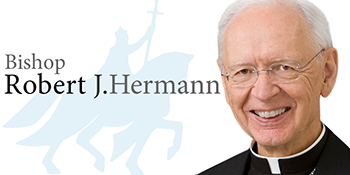 The readings for the 17th Sunday in Ordinary Time demonstrate that God is always looking for ways to share His compassion with His people.
The readings for the 17th Sunday in Ordinary Time demonstrate that God is always looking for ways to share His compassion with His people.
The first reading tells us about a man who came from Baalshalishah, bringing to Elisha 20 barley loaves made from the first fruits and fresh ears of grain. The use of the term “first fruits,” indicates this is something set apart for God’s purposes.
Giving these first fruits to Elisha, the man of God, is the same as giving it to God. Elisha knows immediately that this is intended for God’s needy people and therefore instructs the man: “Give it to the people to eat.”
Apparently, his generous servant was quick to calculate that there were more hungry people than there were loaves of bread. Elisha simply responded, “Give it to the people to eat. For thus says the Lord, ‘They shall eat and there shall be some left over.’” Sure enough, when they had all eaten, there was some left over.
God tries to break into their consciousness as someone who cares about them. He invites them to lift their hearts above the food they eat so that they might recognize God’s goodness beyond the gift. It isn’t enough to nurture their bodies with food, He wants to nurture their hearts with His love and goodness.
In silent prayer, we often recognize His goodness all around us. Recently, I was sitting in St. Anthony Church in Sullivan before Mass, meditating on the real meaning of the Mass. I was struck by the fact that during the Eucharistic Prayer, we twice call down the Holy Spirit on “these gifts.” These gifts are not only the bread and wine, but also the people consecrated to the Father with the bread and wine, as the whole Body of Christ. Suddenly, my eyes were raised to the canopy above the altar to see that it has the shape of a dove hovering over the altar. I had seen that many times before, but I never saw it for what it was.
God’s goodness surrounds us every day, but we’re often too busy to recognize it.
In the Gospel, Jesus crossed the Sea of Galilee, and a large crowd of people followed Him because they “saw signs He was performing on the sick.” Jesus went up the mountain, and when He saw “a large crowd was coming to Him, He said to Philip, ‘Where can we buy enough food for them to eat?’”
Jesus wanted Philip to face the impossibility of a reasonable answer. Philip tried to fathom a possible answer by saying, “Two hundred days’ wages worth of food would not be enough for each of them to have a little.”
I think that at that point Jesus’ unspoken response to Philip might be, “Good, Philip, I am grateful that you are really comprehending the dilemma.”
Next, Andrew takes a stab showing how impossible this dilemma really is. “There is a boy here who has five barley loaves and two fish; but what good are these for so many?”
Jesus has the apostles just where He wants them. They are facing a problem of human need for which they don’t have an answer. He is preparing their hearts for when they will face impossible situations, and He expects them to have the faith that a compassionate God will come through for them.
“Then Jesus took the loaves, gave thanks, and distributed them to those who were reclining and also as much of the fish as they wanted. Five thousand people were fed, and there was food left over.
“When the people saw the sign He had done, they said, ‘This is truly the Prophet, the one who is to come into the world.’”
Jesus was sending out His disciples with the command to proclaim the good news, to call people to repentance, to cast out demons and to heal the sick. Now He prepares their memories to serve them when He leaves them at the Ascension.
How well do our memories of Jesus serve us when we are in a pinch? What happens inside of us when we suddenly come to terms with a terminal illness, a broken relationship, the loss of a loved one or the loss of a job?
Do we simply turn to our own resources and then get angry at God for the dilemma we are facing? We so quickly forget that God is a compassionate Father.
These impossible situations are well planned by God to open our hearts to His presence within us. He wants to take us to a place we have never been before. He wants us to see that the goodness He gives us is far greater than what we initially wanted.
God says to us through impossible situations: “What you want for yourself is neither good enough nor big enough. I want to give you Myself because I want to share with you My love for all eternity!”
To be in a place of inadequacy, of want and of need, is a good place to be because sometimes it takes great discomfort to shake us loose from our plans and our possessions.
Take a look at the apostles on the night of the crucifixion. Their plans for their future were totally crushed. Yet with the resurrection, a whole new world opened up for them.
When we face seemingly impossible situations, only trust in God’s compassionate goodness will see us through. Trust in His compassionate goodness will open up for us a whole new world of His compassionate intimacy.